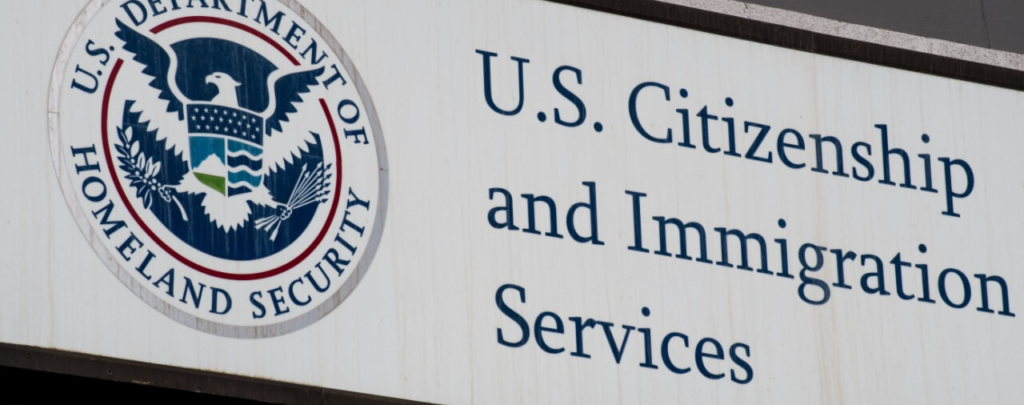I often run into this question asked by my clients: Can an individual who has overstayed his original visa in the USA or otherwise been present illegally in the USA for many years, travel abroad and return to pursue adjustment of status application, which had been pending with USCIS on the day of the travel? For years, the answer I would give had been a resounding NO! Well, it may no longer be necessarily so. Historically, DHS’s position on this issue has been that such individual would be ineligible for admission to the USA, including adjustment of status, on the grounds of the inadmissibility bars set forth in INA 212(a)(9)(B)(i)(II). Consequently, many of such individuals would inevitably end up in removal proceedings before an immigration judge, having been charged with the inadmissibility.
This section of the law sets forth two major inadmissibility bars originally designed to discourage nonimmigrants from overstaying their welcome in the USA. Hence, with very few exceptions, an individual who had overstayed their authorized nonimmigrant stay in the USA would, on the next travel, be barred from being admitted into this country for three years if such overstay lasted for longer than 180 days. An individual whose overstay lasted for over ” a year or more” would be barred from reentering/being admitted into the USA for even longer period of ten years. Since the DHS was taking a position that any departure would trigger these bars, the very fact of such individual’s travel would, in the eyes of the DHS, render him or her barred from being admitted. Absent a grant by an immigration judge of the proven extreme hardship waiver to qualifying relative in the USA, these noncitizens would render themselves ineligible for adjustment of status by the very virtue of having traveled abroad, even though such travel occurred after a grant of advance parole by the USCIS and even though absent such travel, this very individual would have been still eligible for the very immigration benefit he or she found themselves now barred from pursuing. This situation lasted for years, creating voluminous history of litigation by the immigration bar.
Recently, a welcomed change has come for some such noncitizens. It was effectuated by the Board of Immigration Appeals holding in the joined decision in the Matter of Manohar Rao ARRABALLY and Matter of Sarala YERRABELLY (25 I&N Dec. 771 (BIA 2012)) [PDF version], decided by the Board on April 17, 2012. The majority of the panel has held that an undocumented noncitizen who has been granted an advance parole by the USCIS while waiting for adjudication of his or her adjustment of status application and temporary travels abroad ” does not thereby make a departure … from the United States” within the meaning of the INA 212(a)(9)(B)(i)(II). What this holding means from the practical standpoint is that such noncitizens should be allowed back into the United States if they have their good faith adjustment applications pending before the USCIS and sought advance parole so they could be allowed to return to the USA from a temporary travel abroad, if such advance parole benefit was granted by the DHS. The Board held that such individuals would no longer be considered having departed from this country and thus should be allowed to enter the USA in order to continue pursuing their adjustment application, effectively making the “overstay inadmissibility bars” inapplicable to them in these narrow circumstances.
This important decision by the BIA, in essence, established the following conditions under which certain noncitizens who are not legal permanent residents could travel abroad, while awaiting adjudication of their adjustment of status application in a situation in which they would have been otherwise inadmissible as legally barred from being admitted into this country. To travel, such an individual needs (1) to have his or her bona fide adjustment of status application pending before the USCIS; (2) be otherwise not inadmissible or have a prima facie eligibility for a waiver of such inadmissibility; (3) to have been granted advance parole by the USCIS; (4) travel abroad temporarily; (5) be returning to the USA in order to continue pursuing this very application for adjustment of status. If all of these conditions are met, such individuals, the BIA held, do not make a “departure” from the USA for purposes of triggering the overstay bars.
In arriving at this conclusion, the BIA pointed out that the Congress did not define the term “departure” in the Immigration and Nationality Act, because such definition would be very difficult to arrive at. Instead, the meaning of the term was left for the regulations to determine. While continuing to define “departure” broadly, the Board, nevertheless, refused to read into it just about any departure from the USA, regardless of the circumstances. Instead, the Board used a common sense approach, emphasizing importance of “taking into account Congress’ intention to enact a symmetrical and coherent regulatory scheme in which all parts fit into a harmonious whole.” In doing so, the Board cited FDA v. Brown Y Williamson Tobacco Corp 529 U.S. 120, 133(2000) wherein US Supreme Court emphasized this very Congress’s intend, albeit as applied to a different regulatory scheme. The Board concluded that the intention of the Congress for enacting the overstay bars was to place nonimmigrants on notice that if they overstayed their welcome in the USA long enough, they would thereafter be unwelcome to come back for substantial period of time of three/ ten years, depending on the length of the overstay.
The Board concluded “the same cannot be said” for noncitizens who “left the United States and returned with the Government authorization pursuant to the grant of advance parole.” The Board opined that by granting the advance parole, the DHS, in essence, gave permission to the individual to travel abroad temporarily and then return to the United States to continue pursuing their immigration benefits. In so doing, the DHS provided assurances to such individuals that their application for this immigration benefit will not be “deemed abandoned” during their absence and that they will be “paroled back into the United States upon return under prescribed conditions if [they] cannot establish that [they are] admissible at the time.” The Board explained that it opined so because under the law, advance parole is a distinct immigration benefit for “which the alien must demonstrate his eligibility and worthiness,” grant of which by the DHS presupposes both that the grantee “will be permitted to return to the United States thereafter and that he will, upon return, continue to pursue the adjustment application he or she had filed before departing.
The Board found that it was not a Congress’s intention to render such an individual inadmissible under INA 212(a)(9)(B)(i)(II) “solely by virtue of the trip abroad that (1) was approved in advance by the United States Government on the basis of application demonstrating the alien’s qualification for and worthiness of the benefit sought; (2) presupposes the alien’s authorized return thereafter; (3) and was requested solely for purposes of preserving the alien’s eligibility for adjustment of status.”
At the same time, the BIA emphasized that its holding only applied to inadmissibility under the overstay bars of the INA 212(a)(9)(B)(i)(II). The Board explained that other inadmissibility grounds, such as those imposed by certain criminal convictions, might still apply. The Board explained that those inadmissibility grounds would still be applicable in the context of adjustment of status and would not be triggered by the sole virtue of the alien’s preauthorized travel abroad by the grant of advance parole. For this reason, noncitizens should always consult an experienced immigration attorney for a legal advice on the inadmissibility issues prior to traveling abroad even pursuant to the grant of an advance parole.





